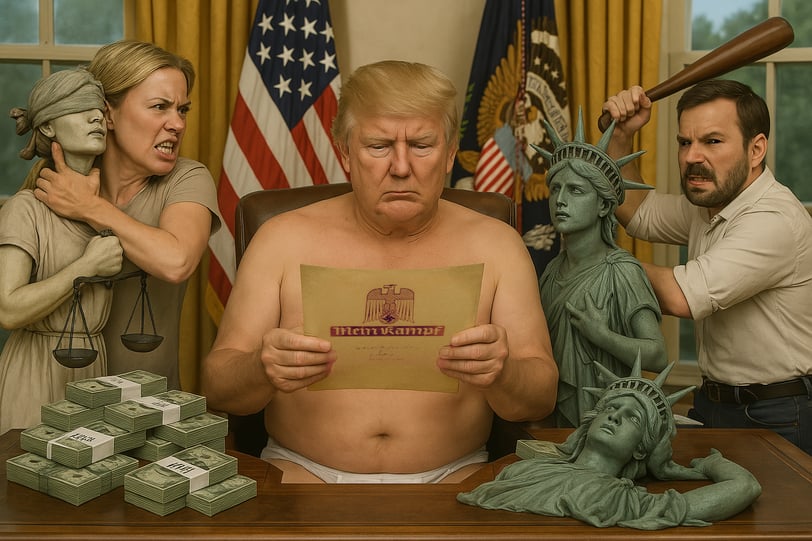It's only illegal, When the Law is Enforced
Trump does not have the authority to impose these tariffs.
POLITICAL
Ron Day
4/6/20252 min read


I’m not a lawyer,
but I was taught to read when I was 6 years old.
I’m having some serious doubts about American reading skills; if you can read too, here is the actual law:
The Trump Tariffs Violate Section 232 by Exceeding Statutory Authority and Ignoring Procedural Requirements
The Trump administration intentionally misread the law it claims allows it to impose tariffs on steel and aluminum imports under Section 232 of the Trade Expansion Act of 1962. By ignoring statutory deadlines, disregarding required procedures, and using national security as a gaslighting pretext, the administration violated the law as written by Congress.
Here is the statutory process they ignored:
The Department of Commerce must conduct a national security investigation and issue a report to the president with findings and recommendations.
The president then has 90 days to decide whether to act on those recommendations.
If action is taken, it must occur within 15 days of the decision.
Statutory Text (19 U.S.C. § 1862(c)(1)): Limits the president’s discretion to a fixed timeframe and a direct response to the Commerce Department’s findings.
Starting to see a problem yet? No, okay. Let me spell it out:
Tariffs were extended to different countries and products months or years after the original decision (e.g., Turkey, Argentina, and derivatives like steel nails). These actions occurred well beyond the 90 + 15-day window allowed by the statute—and in some cases, they didn’t even bother to do another Commerce investigation. The president has no statutory authority to impose or expand tariffs under Section 232 after the deadlines or without new findings.
Section 232 is meant to address genuine threats to national security — not to protect uncompetitive domestic industries or gain leverage in trade negotiations. While the Courts are reluctant to second-guess national security claims when an administration publicly admits that its tariffs are a bargaining tool, it invalidates its justification. And in case you forgot? President Trump: “Tariffs were “a great negotiating tool” with allies like Canada and Mexico”.
Let’s get back to the law he uses to implement these tariffs. The structure of Section 232 makes clear that Congress intended to preserve limited presidential discretion within a defined process. The law’s constraints make clear that indefinite tariffs were never on the table without further investigations. Our national security is a serious matter, but so is abusing that rationale to circumvent the authority of Congress.
Whatever you think about the economic merits of the Trump tariffs, the law matters. Section 232 of the Trade Expansion Act was not followed. Trump violated the law by exceeding deadlines, ignoring procedures, and misusing national security justifications. It is up to the public and the courts if Congress does not reaffirm its authority over trade policy.
